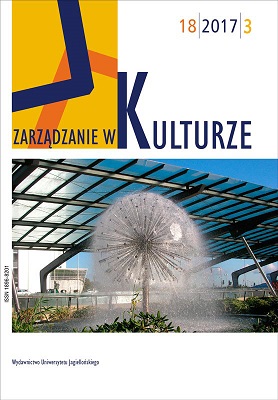Bizantyjskie „Zapevi” Współczesnego Teatru Bułgarskiego. Teksty, Konteksty, Figury
The Byzantine “Chants” of the Contemporary Bulgarian Theatre Texts, Contexts, Figures
Author(s): Galia Simeonowa-KonachSubject(s): Theatre, Dance, Performing Arts, Cultural history, Bulgarian Literature, Sociology of Culture, Drama
Published by: Wydawnictwo Uniwersytetu Jagiellońskiego
Keywords: Bulgarian Theatre (20th Century); Radko Radkov; Theophano; Byzantine Commonwealth; historical memory; Anniversary 1300 years Bulgarian state (1981);
Summary/Abstract: The article is dedicated to the problems of historical drama, one of the ways of interpreting the past. The study is placed in the context of the sociology of culture and the historical memory of society, with a focus on the transposition and the symbolical representation of the history of Byzantium and the Second Bulgarian Kingdom (1181–1396) in literature. The subject of the analysis are the works of the Bulgarian poet and playwright Radko Radkov (1940–2009), above all his play Theophano, written in the convention of classical drama in verse and the so-called ritual drama, according to the title of the author, a synthesis of text borrowed from Old Bulgarian Literature, and Byzantine hymnography, inspired visually by the images of the Middle Age Miniatures included in Manassij’s Chronicle (Codex Vaticanus Slav II) – Praise of Turnovgrad and In Praise of the Word. The historical theme in the work of Radko Radkov is substantially different from the interpretation of the Bulgarian history of other Bulgarian writers of the second half of the 20th Century, by which the author is opposing the ideological constructs of the official authorities during this period. Within the discourse of the relations between creator and authorities, attention is paid to some events surrounding the 1300 anniversary of the creation of the Bulgarian state (celebrated in 1981), when, thanks to the benevolence of Lyudmila Zhivkova and the open culture policy that she, as Chairperson of the Committee of Arts and Culture, had introduced, the plays of Radko Radkov were allowed to be staged in the theatres. The playwright has found semiotic and stylistic devices that recreate the classical past of the people, the orthodox Christianity and culture in the universal perspective of the Byzantine Commonwealth, and artistically voice his historiosophic views concerning Bulgarian national history and the Byzantine-Bulgarian cultural community. The paper analyses the tribulations of the performance of Theophano, staged in Bulgaria by the French Director Pierre Della Torre, who sees in the poetic world of Radko Radkov “the monumental force of the masters of French theatre, Racine and Corneille”.
Journal: Zarządzanie w kulturze
- Issue Year: 18/2017
- Issue No: 3
- Page Range: 467-478
- Page Count: 12
- Language: Polish

